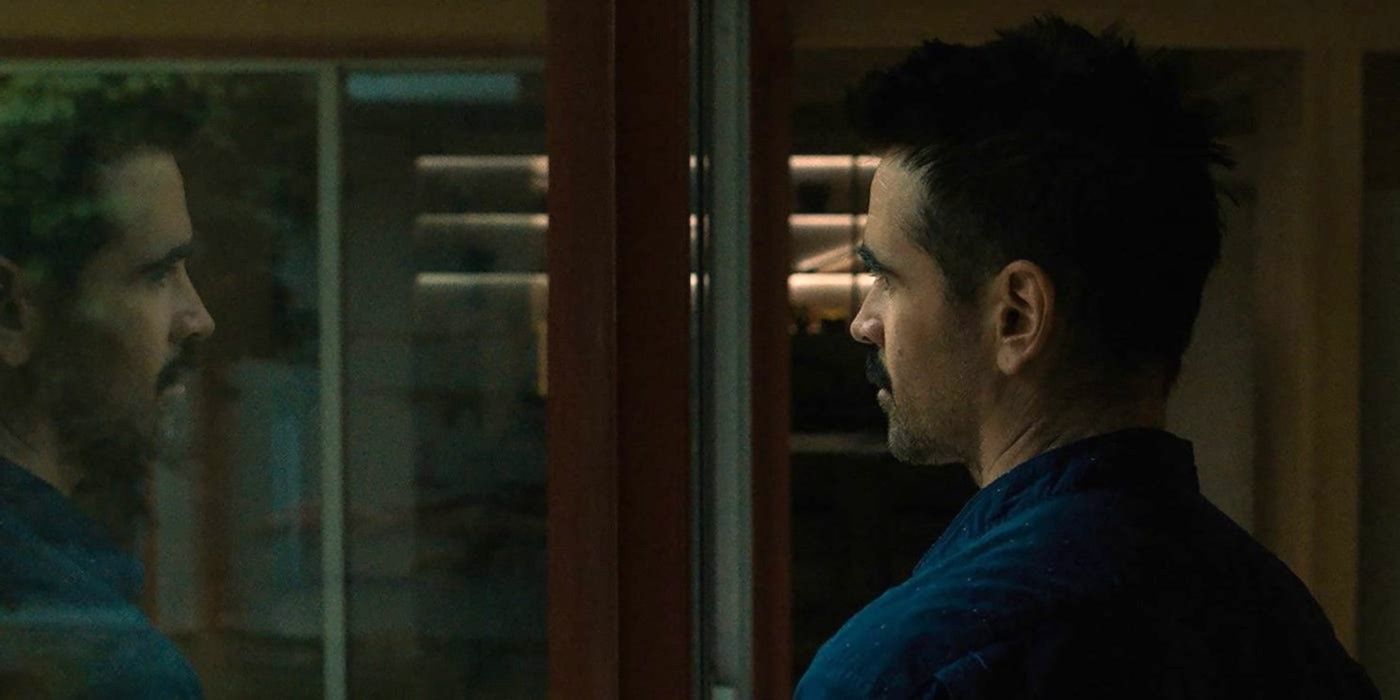The opening credits sequence of Kogonada's science fiction film After Yang is a stroke of genius. The film as a whole is a meditative drama about death, but for a few minutes early on, it's a joyous family dance party. In the movie's future, families around the world compete regularly in a video game dancing competition. Jake (Colin Farrell), Kyra (Jodie Turner-Smith), and Mika (Malea Emma Tjandrawidjaja) play until they're eliminated -- but their "technosapien" Yang (Justin H. Min) keeps dancing even after being told to stop.
Anyone who was ever traumatized as a child after trying to feed their Furby knows what happens next. Yang, however, was not just some toy. He was a caretaker for young Mika while her parents were busy, but even more than that, he's embraced by the family as her "brother." Mika's parents adopted her from China. Yang takes the form of a Chinese man with extensive knowledge of Chinese culture to connect Mika with her roots. What it means for an artificial being to have an ethnicity is just one of the many fascinating questions After Yang asks.
Mika desperately wants Yang fixed. Although stores will provide heavy discounts on a new replacement if they donate Yang to be recycled, the family won't accept any replacement. Jake's journey to save Yang goes in complicated directions, painting a picture of a world where artificial intelligence has become so advanced that even technicians and scientists find its workings to be as mysterious as that of human intelligence.
After Yang is a serious film with heavy subject matters, but while it's often a tear-jerker, it's never a downer. It's beautiful philosophically and artistically. It's a peaceful experience, heavily informed by Taoist thought and a general appreciation for existence. It's noteworthy just how much greenery there is in the film's futuristic setting. While our perspective might be limited to just the surroundings of this one fairly well-off family, the general impression is that this isn't some dark dystopian future. The film's soundtrack, with pieces by ASKA, Ryuichi Sakamoto, and Mitski, perfectly suits the story's meditative vibes and emotional peaks.
While the rest of After Yang is never as wild and energetic as its opening credits, it's not devoid of playfulness. Colin Farrell dons a Werner Herzog impression for a good moment of comic relief, and Kogonada keeps casually introducing new sci-fi concepts -- even an hour into After Yang's runtime. The only aesthetic choice which doesn't work is when conversations are shown in a different aspect ratio and style, homaging the great Japanese filmmaker Yasujiro Ozu -- the film's Ozu influence is clear enough without these too-cute asides.
After Yang shares a lot of common ground with Denis Villeneuve's Arrival. Both films are adapted from short stories (After Yang from Alexander Weinstein's "Saying Goodbye to Yang," Arrival from Ted Chiang's "Story of Your Life") with a more intellectual bent than the typical Hollywood explosion-based sci-fi. Both movies explore memory and mourning in unique ways via unconventional editing methods. To their credit, both films are life-affirming experiences designed to give science fiction fans a good, healthy cry. After Yang is possibly the best film of its kind since Arrival, setting the bar high for the rest of the year's sci-fi movies.
After Yang first premiered at the 2021 Cannes Film Festival and made its American premiere at the 2022 Sundance Film Festival. A24 will release the film in theaters this March.

